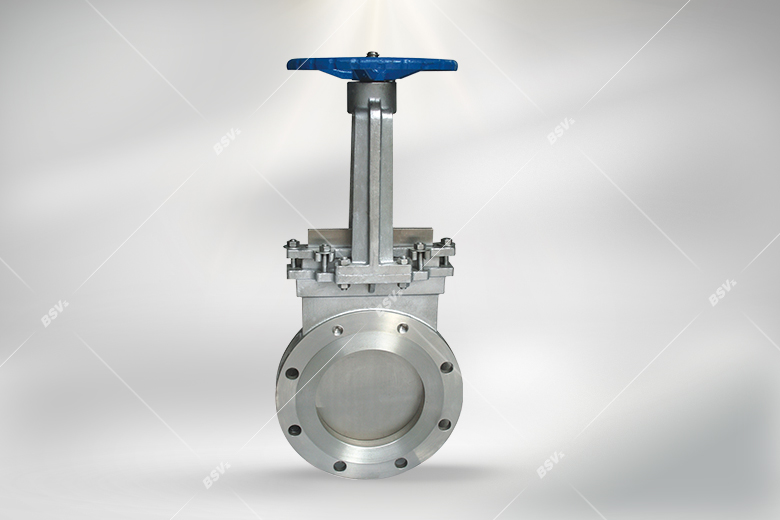Release time:2025-03-31Clicks:
When it comes to selecting the right knife-gate valve for your project, the task can seem daunting due to the sheer variety of options available in the market. Knife-gate valves are specifically designed to handle tough and abrasive media, making them indispensable in industries such as mining, wastewater treatment, pulp and paper, and power generation. However, choosing the wrong valve can lead to inefficiencies, increased maintenance costs, and even system failures. That’s why understanding the key factors in selecting the right knife-gate valve is crucial.
At Lishui BSV Valves Supplier, we specialize in delivering high-quality knife-gate valves that meet the specific requirements of diverse industries. In this comprehensive guide, we will walk you through the essential considerations to ensure you make the right choice for your project. From understanding the types of knife-gate valves to evaluating operating conditions, this article will serve as your go-to resource.
A knife-gate valve is a type of valve designed to cut through thick fluids, slurries, or other challenging materials. It uses a sharp-edged gate to effectively "slice" through the media, allowing for a tight seal when closed. These valves are ideal for applications involving high-viscosity fluids, solids, or semi-solids, where traditional valves may struggle to perform efficiently.
Pneumatic Ball Valve
Sleeve Lined Plug Valve
Large Caliber Knife Gate Valve
Y Type Strainer
Worm Gear Wafer Center Line Butterfly Valve
The primary advantage of knife-gate valves is their ability to handle abrasive and corrosive materials without clogging. This makes them a popular choice in industries where the media includes sludge, slurry, or fibrous materials that would otherwise compromise the performance of standard valves.
Knife-gate valves come in various types, each designed for specific applications. Below are the most common types:
Unidirectional knife-gate valves are designed to handle flow in one direction only. These valves are ideal for applications where backflow is not a concern. They are commonly used in wastewater treatment plants and mining operations.
Bidirectional knife-gate valves are capable of handling flow in both directions. These valves are suitable for applications where the flow direction may change or where a tight seal is required in either direction. Industries such as pulp and paper often opt for bidirectional valves due to their versatility.
Through-conduit knife-gate valves are designed to provide a full bore when open, minimizing pressure drop and allowing for the smooth passage of media. These valves are ideal for applications requiring minimal turbulence, such as in pipelines transporting slurry or viscous fluids.
Wafer-style knife-gate valves are compact and lightweight, making them suitable for installations with limited space. Despite their smaller size, they offer robust performance and are commonly used in industries like food processing and chemical manufacturing.

Choosing the right knife-gate valve involves evaluating several factors to ensure optimal performance and longevity. Below are the key considerations:
The type of media your system handles will significantly influence your choice of valve. For abrasive materials like sand or slurry, opt for a valve with a hardened gate and wear-resistant seals. For corrosive media, consider valves made from stainless steel or other corrosion-resistant materials.
Ensure the knife-gate valve you select can withstand the operating pressure and temperature of your system. Exceeding these limits can lead to valve failure and system downtime. Always consult the manufacturer’s specifications to verify suitability.
The size of the valve should match the diameter of your pipeline. Oversized or undersized valves can lead to inefficiencies and increased wear and tear. At Lishui BSV Valves Supplier, we offer a wide range of valve sizes to meet your exact requirements.
Knife-gate valves can be operated manually, pneumatically, hydraulically, or electrically. The choice of actuation method depends on the level of automation required and the specific application. For remote or automated systems, pneumatic or electric actuators are often preferred.
The material of the valve body, gate, and seals should be compatible with the media and operating conditions. Common materials include cast iron, stainless steel, and ductile iron. For highly corrosive environments, consider valves with special coatings or linings.
Some knife-gate valves are easier to maintain than others. Consider the ease of access to internal components and the availability of replacement parts. At Lishui BSV Valves Supplier, we design our valves with maintenance in mind, ensuring minimal downtime and reduced costs.
While cost is an important factor, it should not be the sole determinant. Investing in a high-quality knife-gate valve may have a higher upfront cost but can save you money in the long run through improved performance and reduced maintenance.
At Lishui BSV Valves Supplier, we pride ourselves on offering premium-quality knife-gate valves tailored to meet the unique needs of our clients. Here’s why you should choose us for your next project:
Choosing the right knife-gate valve is a critical decision that can impact the efficiency, reliability, and cost-effectiveness of your system. By considering factors such as media type, pressure and temperature ratings, valve size, and actuation method, you can make an informed choice that meets your project’s requirements.
At Lishui BSV Valves Supplier, we are here to guide you every step of the way. With our extensive product range, custom solutions, and commitment to quality, you can trust us to deliver the perfect knife-gate valve for your needs. Contact us today to learn more about our products and services.
Remember, the right valve is not just a component; it’s an investment in the success of your project. Make the smart choice with Lishui BSV Valves Supplier.